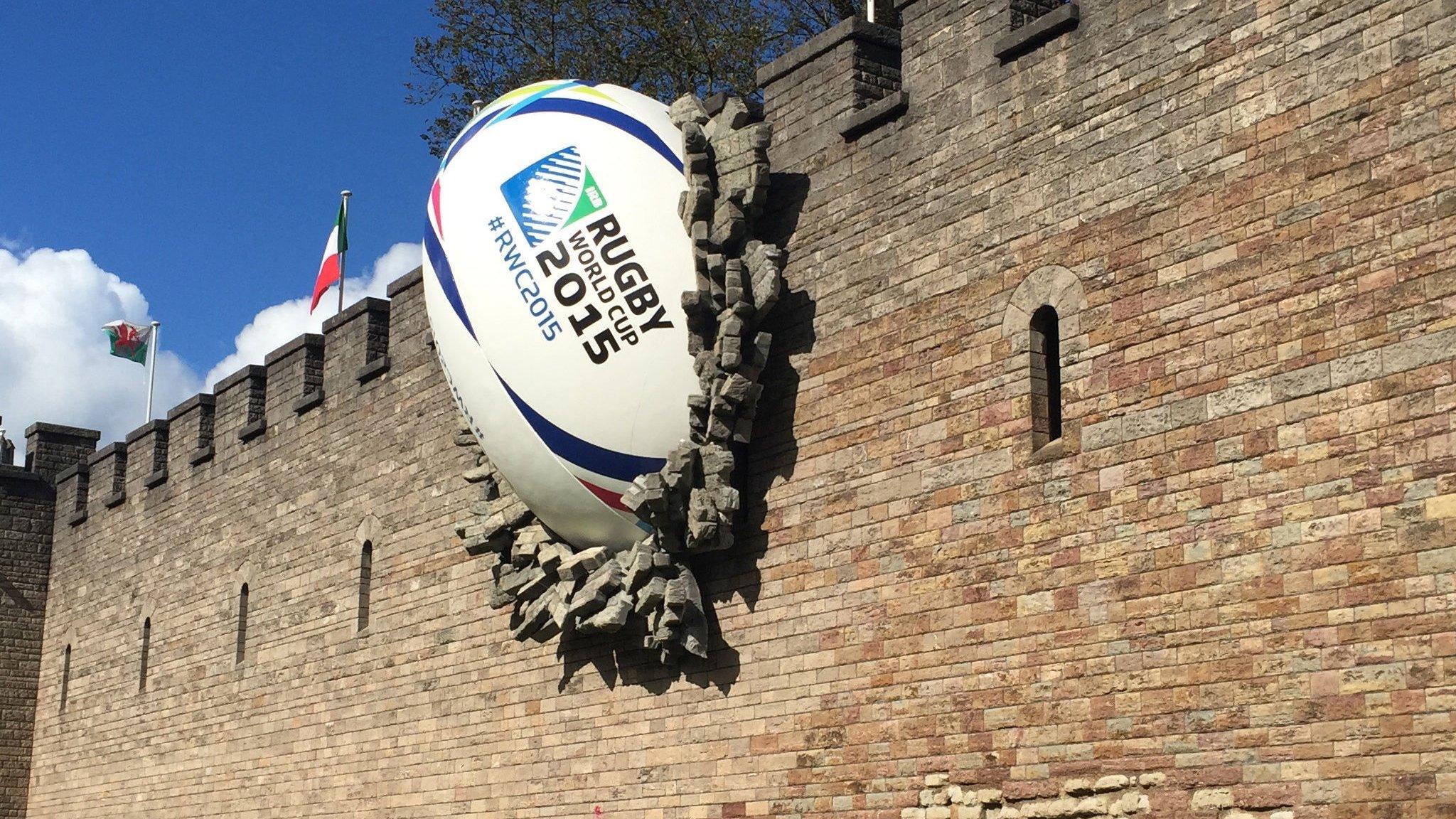Rugby World Cup: Passengers tackle crowding and engineering
- Published
- comments
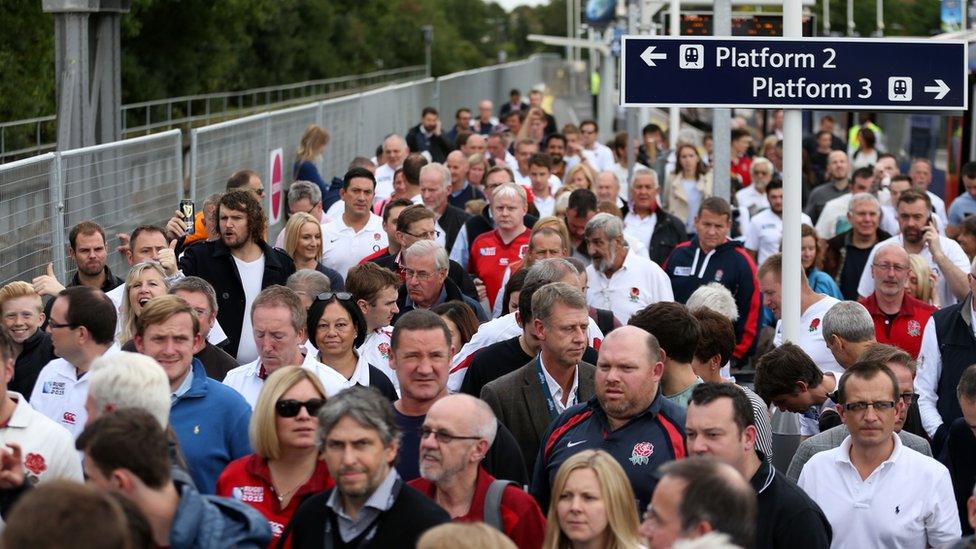
Twickenham station struggles to cope with crowds at the best of times
So how did transport cope with the first weekend of the Rugby World Cup?
There were some bad experiences for rugby fans getting to and from venues by train. Generally it feels like the service itself has been patchy.
While I'm told the trip to Brighton for South Africa v Japan on Saturday was a breeze, the trains to Cardiff for Ireland vs Canada organised by First Great Western were rammed.
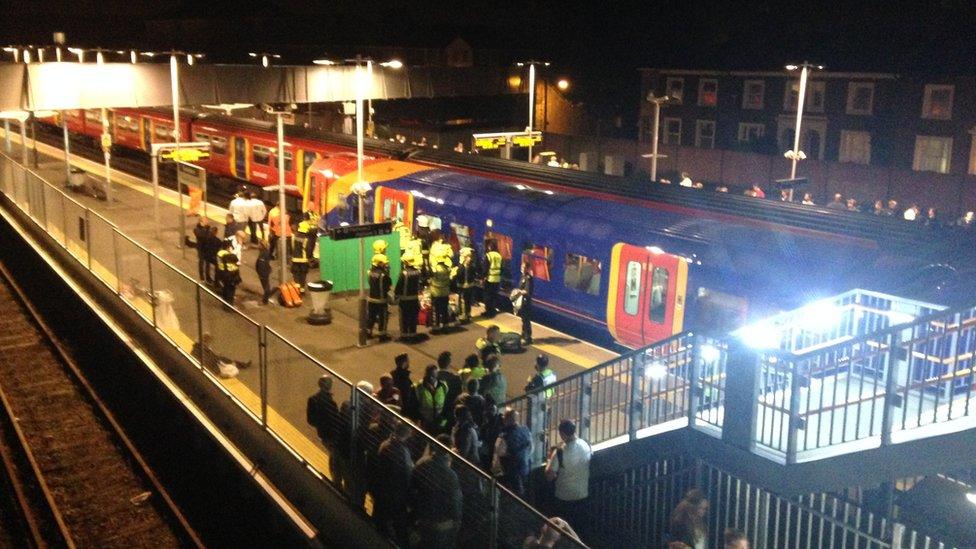
Twickenham station had to be evacuated after a passenger was struck by a train
The problem there, I'm told, is lots of fans turned up at the same time to travel. Great Western admits its messaging was not strong enough to encourage fans to travel earlier in the day.
For the game on Wednesday in Cardiff between Australia and Fiji it says passengers with later tickets can travel on earlier trains (not vice-versa). It says it was an issue with travel management and not the number of services available, and it wants as many passengers as possible to travel just after the morning peak.
On Saturday, Twickenham station itself had to be shut after a man was struck by a train and because of that there was even more overcrowding than usual. Eyewitnesses told us it was not far off serious crushing outside.
Twickenham station struggles to cope with crowds at the best of times. It is a suburban rail station and not really designed for big sporting events, and when it deals with them it is at capacity.
I'm told other routes like the shuttle bus to Hounslow Central were quite good.
This weekend fans should be aware there will be six sets of engineering works across London.
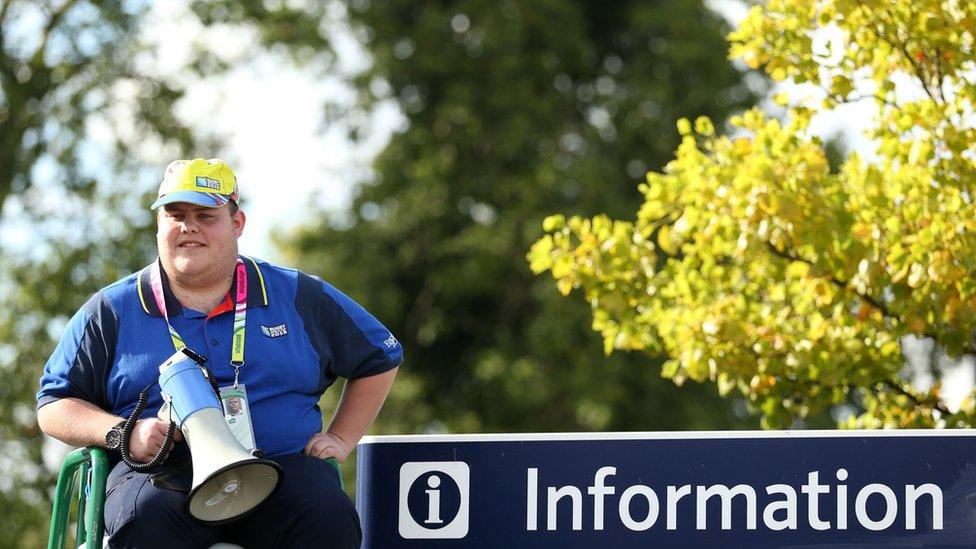
There will be six sets of engineering works across London this weekend
While Network Rail has suspended work on key routes to the venues, fans should check their routes so they don't get caught out. For example, on the Great Northern to Peterborough there will be a bus replacement service from midnight on Saturday.
Network Rail says: "It is vital that we continue to maintain and upgrade the rail network millions of people in and around the capital rely on every day."
- Published21 September 2015
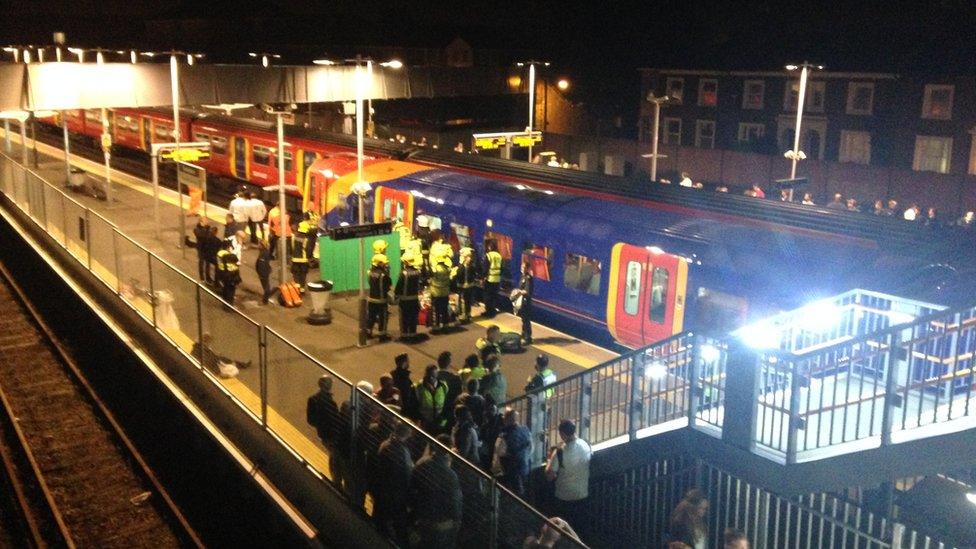
- Published19 September 2015

- Published19 September 2015
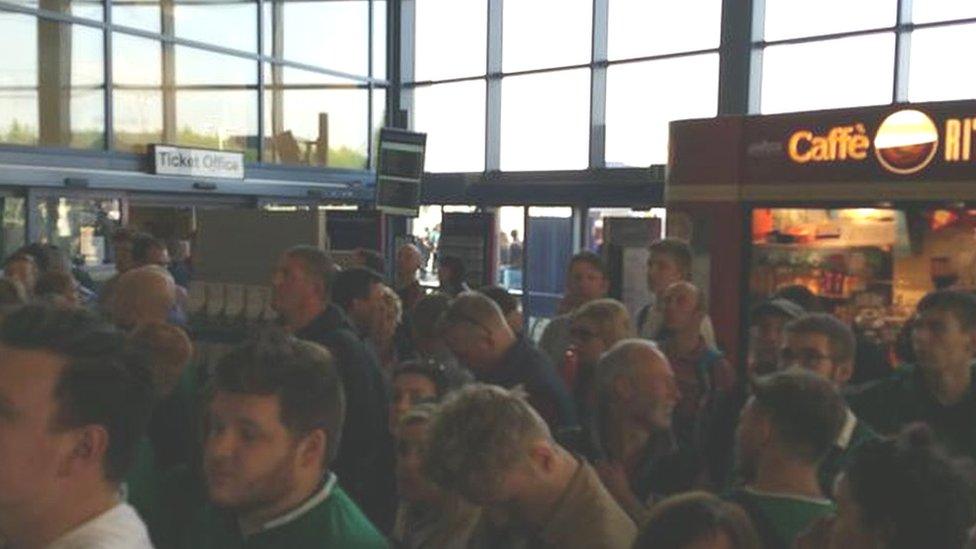
- Attribution
- Published18 September 2015
